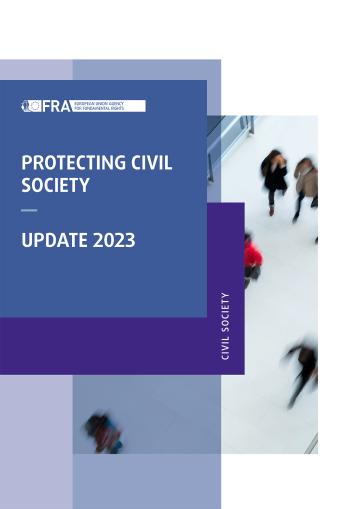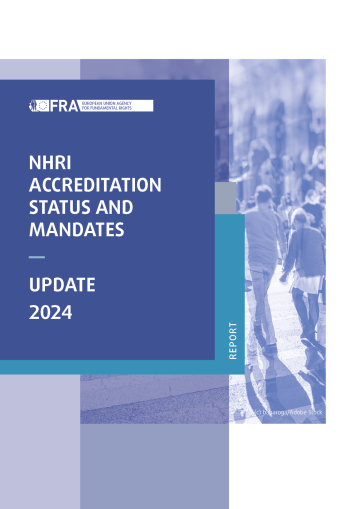Preamble
(3) Article 10(3) TEU states that every Union citizen has the right to participate in the democratic life of the Union. The Charter of Fundamental Rights of the European Union (the ‘Charter’) provides, inter alia, for the right to respect for private and family life, to the protection of personal data, to freedom of expression and information, which includes respect for the freedom and pluralism of the media, to freedom of assembly and of association and the right to an effective remedy and to a fair trial.
(4) The right to freedom of expression and information as established in Article 11 of the Charter includes the right to hold opinions and to receive and impart information and ideas without interference by public authority and regardless of frontiers. It is necessary to give to Article 11 of the Charter the meaning and scope of corresponding Article 10 of the European Convention on Human Rights (‘ECHR’) on the right to freedom of expression as interpreted by the European Court of Human Rights (‘ECtHR’).
(7) The right to freedom of expression is a fundamental right that is to be exercised with a sense of duty and responsibility, taking into account people’s fundamental right to obtain impartial information, as well as respect for the fundamental right to protect one’s reputation, protection of personal data and privacy. In cases of a conflict between those rights, all parties are to have access to courts with due respect for the fair trial principle. To that end, this Directive should leave the court or tribunal seised of the matter with the discretion to consider whether the application of the relevant safeguards is appropriate in a particular case. In exercising such discretion the court should not apply the relevant safeguards for example where the public participation is not in good faith such as in cases where, through the public participation, the defendant disseminated disinformation or fabricated allegations for the purpose of damaging the claimant’s reputation.
(22) Public participation should be defined as the making of any statement or the carrying out of any activity by a natural or legal person in the exercise of fundamental rights such as freedom of expression and information, freedom of the arts and sciences, or freedom of assembly and association, and concerning a matter of current or future public interest, including the creation, exhibition, advertisement, or other promotion of journalistic, political, scientific, academic, artistic, commentary or satirical communications, publications or works, and marketing activities. Future public interest refers to the fact that a matter might not yet be of public interest, but could become so, once the public becomes aware of it, for example by means of a publication. Public participation can also include activities related to the exercise of academic and artistic freedom, the right to freedom of association and peaceful assembly, such as the organisation of or participation in lobbying activities, demonstrations and protests or activities resulting from the exercise of the right to good administration and the right to an effective remedy, such as claims before courts or administrative bodies and participation in public hearings. Public participation should also include preparatory, supporting or assisting activities that have a direct and inherent link to the statement or activity that is targeted by SLAPPs to stifle public participation. Such activities should directly concern a specific act of public participation or be based on a contractual link between the actual target of a SLAPP and the person providing the preparatory, supporting or assisting activity. Bringing claims not against a journalist or a human rights defender but against the internet platform on which they publish their work or against the company that prints a text or a shop that sells the text can be an effective way of silencing public participation, as without such services opinions cannot be published and thus cannot influence public debate. In addition, public participation can cover other activities meant to inform or influence public opinion or to foster the taking of action by the public, including activities by private or public entities in relation to an issue of public interest, such as the organisation of or participation in research, surveys, campaigns or any other collective actions.
Article 4: Definitions
For the purposes of this Directive, the following definitions apply:
(1) ‘public participation’ means the making of any statement or the carrying out of any activity by a natural or legal person in the exercise of the right to freedom of expression and information, freedom of the arts and sciences, or freedom of assembly and association, and any preparatory, supporting or assisting action directly linked thereto, and which concerns a matter of public interest;
(2) ‘matter of public interest’ means any matter which affects the public to such an extent that the public may legitimately take an interest in it, in areas such as:
(a) fundamental rights, public health, safety, the environment or the climate;
(b) activities of a natural or legal person that is a public figure in the public or private sector;
(c) matters under consideration by a legislative, executive, or judicial body, or any other official proceedings;
(d) allegations of corruption, fraud, or of any other criminal offence, or of administrative offences in relation to such matters;
(e) activities aimed at protecting the values enshrined in Article 2 of the Treaty on European Union, including the protection of democratic processes against undue interference, in particular by fighting disinformation;
(3) ‘abusive court proceedings against public participation’ mean court proceedings which are not brought to genuinely assert or exercise a right, but have as their main purpose the prevention, restriction or penalisation of public participation, frequently exploiting an imbalance of power between the parties, and which pursue unfounded claims. Indications of such a purpose include for example:
(a) the disproportionate, excessive or unreasonable nature of the claim or part thereof, including the excessive dispute value;
(b) the existence of multiple proceedings initiated by the claimant or associated parties in relation to similar matters;
(c) intimidation, harassment or threats on the part of the claimant or the claimant’s representatives, before or during the proceedings, as well as similar conduct by the claimant in similar or concurrent cases;
(d) the use in bad faith of procedural tactics, such as delaying proceedings, fraudulent or abusive forum shopping or the discontinuation of cases at a later stage of the proceedings in bad faith.
Article 9: Support for the defendant in court proceedings
Member States shall ensure that a court or tribunal seised of court proceedings brought against natural or legal persons on account of their engagement in public participation may accept that associations, organisations, trade unions and other entities which have, in accordance with the criteria laid down by their national law, a legitimate interest in safeguarding or promoting the rights of persons engaging in public participation, may support the defendant, where the defendant so approves, or provide information in those proceedings in accordance with national law.










